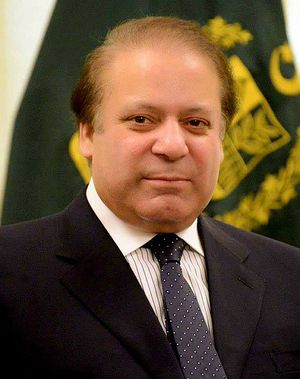Every year, about 1,000 women are killed in Pakistan in the name of honor. According to the Human Rights Commission of Pakistan, the actual figure may be far higher, as a majority of cases are never registered or reported, particularly in rural areas. Over the last week alone, two women were murdered in so-called honor killings in Pakistan.
It is unfortunate that many of the perpetrators of honor killings are never brought to justice. The lack of punishment encourages the continuation of these killings, perpetuating a culture of impunity. Ultimately, the perpetrators believe they can get away with honor killings, and existing loopholes in Pakistan’s Anti-Honor Crime Laws allow perpetrators to walk free.
In a majority of the cases, the victim is usually killed by a close family member, most often a brother, father, or husband. The law in Pakistan currently allows victims’ families to forgive the offender. If the victim is killed, her family has the right to forgive her killer on her behalf. This means, when a brother murders his sister, his parents can pardon him and when a father kills his daughter, his wife can forgive him.
The issue has been brought to prominence recently. Sharmeen Obaid-Chinoy’s recent documentary, A Girl in the River: The Price of Forgiveness, which won an Academy Award on Sunday, tells the story of a young Pakistani girl who was beaten, shot, and thrown into a river by her father because she married a man of her choice.
The documentary has attracted a lot of attention nationally and internationally, especially in the media. This attention is likely to translate into action in the form of much tougher laws on the issue: last week, Pakistan’s Prime Minister Nawaz Sharif hosted a screening of the film in Islamabad and promised “to rid Pakistan of the crime” by tightening up the relevant legislation. While Pakistan is celebrating an Academy Award win, a court in Lahore, Punjab, has sentenced two brothers to death for killing their sister in an honor killing.
“The biggest victory would be to get the legislation passed — to take forgiveness off the table, to have a law that deters killing women in the name of honor, and for people to realize that this is a serious crime,” said director Obaid-Chinoy. She added, “It’s not something that is part of our religion or culture. This is something that should be treated as pre-meditated murder and people should go to jail for it.”
Pakistan’s most populous province, Punjab, a week ago passed string of laws to protect women’s rights in the province. The Punjab Protection of Women Against Violence Bill has redefined violence as any offense committed against a woman, including “domestic, sexual, psychological, economic abuse, and cybercrime.”
Many religious parties in the country have criticized the law by terming it anti-Islamic. They allege that by passing such laws, the current government is trying to liberalize the country. “Husband and wife are considered partners in the West, but it is not the case in Pakistan,” said the Jamiat-i-Ulema Islam chief, adding that “this law makes a man insecure.”
While the federal government has promised to put in place legislation against the controversial Islamic laws which encourage honor killings and violence against women, the Islamist parties have vowed to resist any such reforms. “Removing Islamic laws shall never be tolerated as this country came in to being in the name of Islam,” the leader of an Islamist party said. “The religious parties will not allow the government to solve the problem in this way.”
While fear of a religious backlash has long prevented Pakistan’s political leaders from bringing any comprehensive legislation to bear on the issue, Sharif’s promise to back new laws is remarkable and crucial. While it’s going to be an uphill battle for the prime minister, strengthening of existing laws will help change Pakistan’s culture of impunity.

































